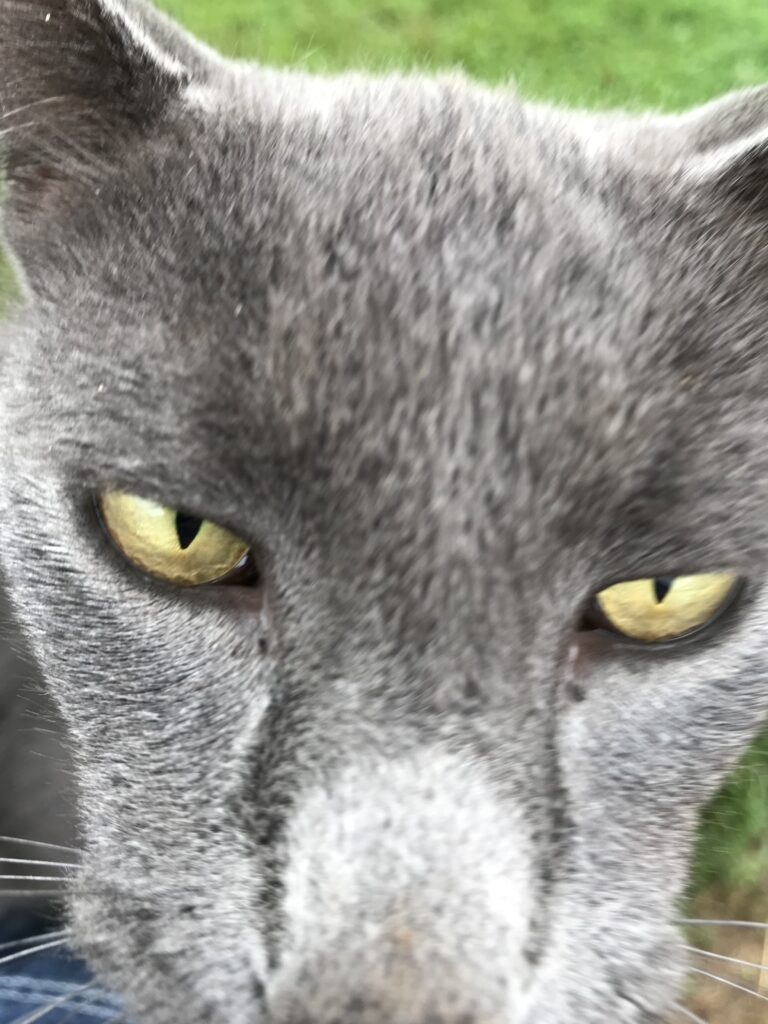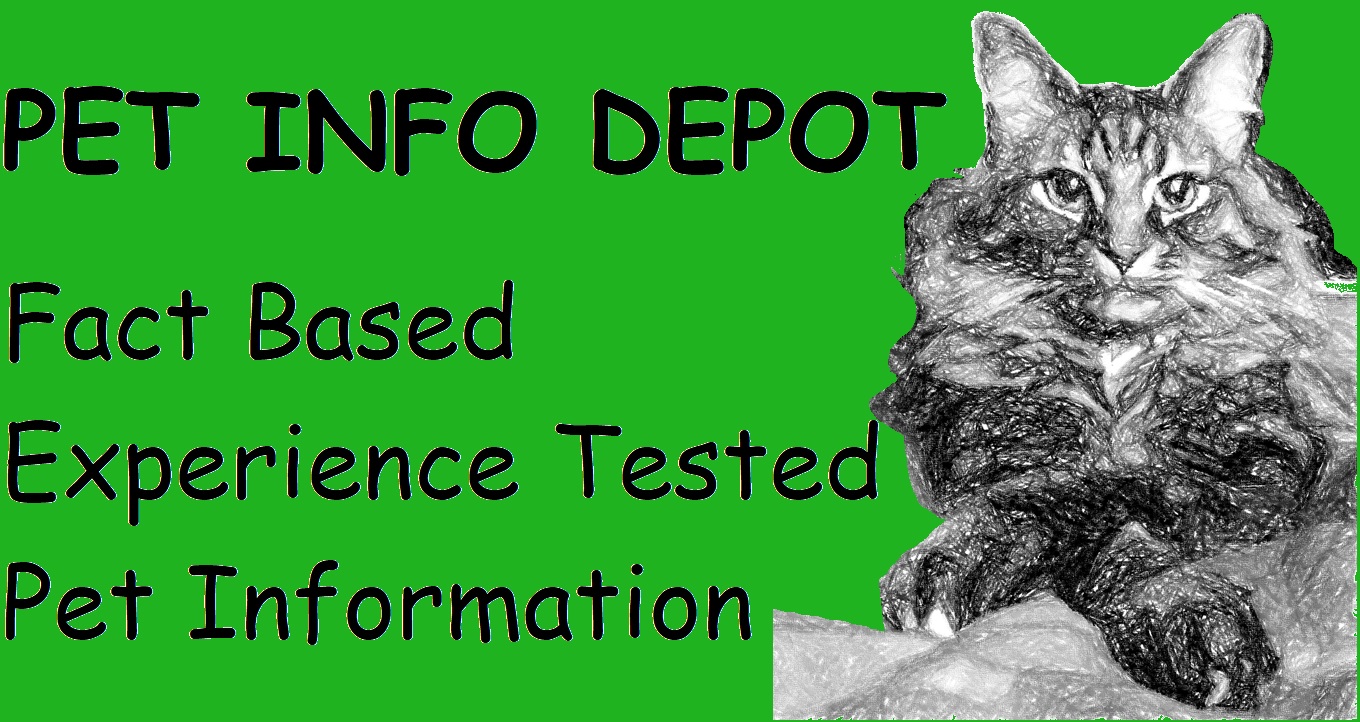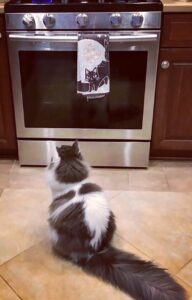NATE KNOWS PETS

I am never at a loss for an opinion. At least now I have an outlet! Below you will find my thoughts on a wide variety of pet related topics.
♦
None of what I post should be taken as the final word on a topic; just the beginning of a conversation with your own personal pet care professional.
(Occasionally, you will find a link to the glossary embedded within an article to expand on what you are discovering)

Chunk the Barn Cat, is keeping a watchful eye.
BLOGS, ESSAYS & THOUGHTS
HOLIDAY FOODS AND YOUR PETS!
From Halloween to the Super Bowl, we are surrounded by a tremendous amount of food that is specifically tied to a variety of celebrations. We often go out of our way to have extra special meals around each event, often inviting extra people and not always confining our meals to the dinner table. We love to share these meals and experiences with family and friends, we also find we have a desire to share with our animal friends.
How can we do this safely?
The easy answer is that our pets know nothing of holidays and celebrations except that we are behaving differently. We should feed them on their normal food at their normal time in the normal way. This of course is easier said than done. Just picture yourself in the kitchen after pulling the turkey out of the oven, testing the temperature, the tempting aroma filling the air and not taking a small sampling right then and there. We likely find ourselves giving in to temptation… just a little bit…it’s delicious. As we savor, we see big, hungry eyes staring up at us.
There are all sorts of ways people feed their pets. Some feed kibble only with no treats at all and certainly no people food, others feed kibble with just a little something extra (pet treats or a little “table scrap”) here and there. Some may feed a mixed diet of canned, kibble, people foods, whatever falls on the floor during cooking. Some of you may have transitioned to home cooking or even some form of raw diet.
None of these diets necessarily makes it any easier to abruptly feed them these “strange” foods like you might serve at: Halloween, Thanksgiving, Hanukah, Kwanzaa, Winter Solstice, Christmas, New Year’s Eve, and yes, even the Super Bowl (don’t tell me you have forgotten the pizza, beer, and nachos!). Although some of the foods we eat may cause harm it is just as likely that feeding something so different can cause upset.
What causes these dietary upsets often has to do with the differences in what is found in parts of the Guaranteed Analysis (fat content/ carb content are the most obvious examples). The worry about switching an animal’s regular diet abruptly because they might get “sick” is exactly the same thing. There are many causes to this type of problem. Every animal has a combination of “digestive juices” (enzymes, microorganisms, etc.) in their intestines and depending on their regular diet they may have higher or lower levels of these “juices”. Enzymes and microorganisms break down proteins, carbs, fats, and some types of fibers. Often when there is a quick diet change the levels in their system can’t handle the new percentages of what is being thrown at them. This is not including things that may actually be toxic and an immediate danger to an animal’s well-being.
Basically, that means before you have your animals share in your feast you need to consider not only whether the ingredient is safe but whether the food is so different that it can cause digestive upset.
This does nothing to address the fact that we, as humans, frequently wildly overindulge this time of year… Taking a basic example; A 50lb adult dog in generally good health and neutered may need somewhere around 880 kcalories a day and that can vary quite a bit based on other considerations. (WSAVA Calorie Chart) An adult male human in generally good health and moderate activity level may need approximately, 2600 kcalories (Choosemyplate.gov). How much of that sweet potato casserole is a serving for the dog? How much for the man? Good luck!!
Let’s make an assumption here, you are going to do it. Some of you may do fantastically well, avoiding giving your animal’s anything that doesn’t specifically say their species or breed on the container of food. That doesn’t mean your guests may not slip them something or maybe the kid’s table has a spill, and your furry vacuum cleaner is right there to help out in cleanup. Or maybe, you have a pesky counter surfer that likes to help themselves.
So, let’s dig in!
This is a wonderful friend of mine, Castor the Maine Coon Cat.
Types of animals and what might work for them:

